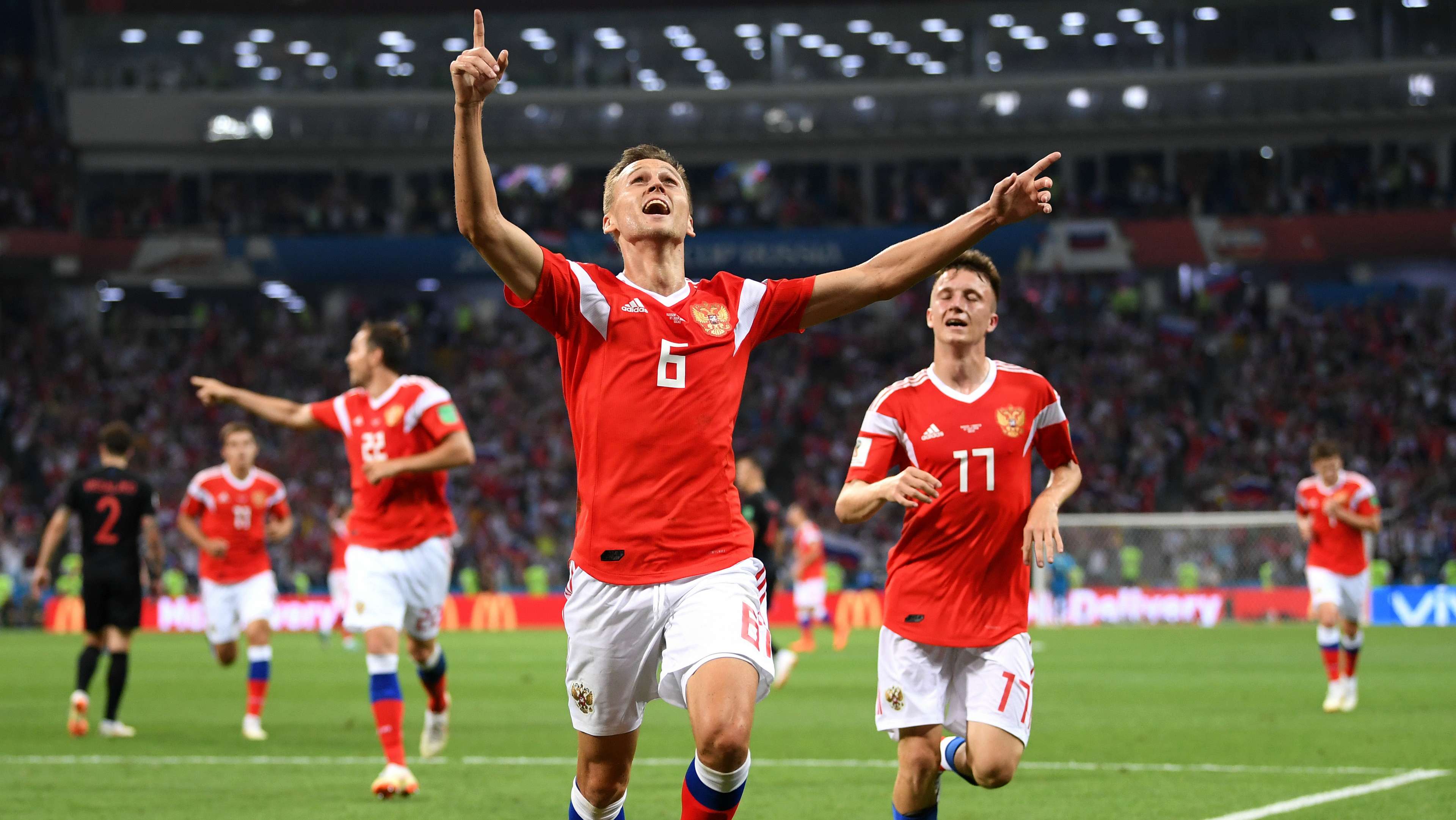Russian footballers love the number eight. All of our recent successes have come in years ending with this number: the USSR reached the final of Euro 88, Russia came third in Euro 2008 and have now reached the quarter-finals of the World Cup in 2018.
There is no point in analysing the aftermath of 1988, as the country those players represented collapsed shortly afterwards, leaving economic, ethnic and cultural shocks that were felt around the world. This experience was completely unique.
However, the bronze medal-winning performance at Euro 2008 should be viewed in more detail. Why did the squad that destroyed the Netherlands in the quarter-final fail to live up to their potential and become true world-beaters?
Some of those players moved to England after the tournament.
First, Roman Pavlyuchenko went to Tottenham, then Arsenal signed Andriy Arshavin, before Yuri Zhirkov and Diniyar Bilyaletdinov moved to Chelsea and Everton, respectively, a year later.
Next Match
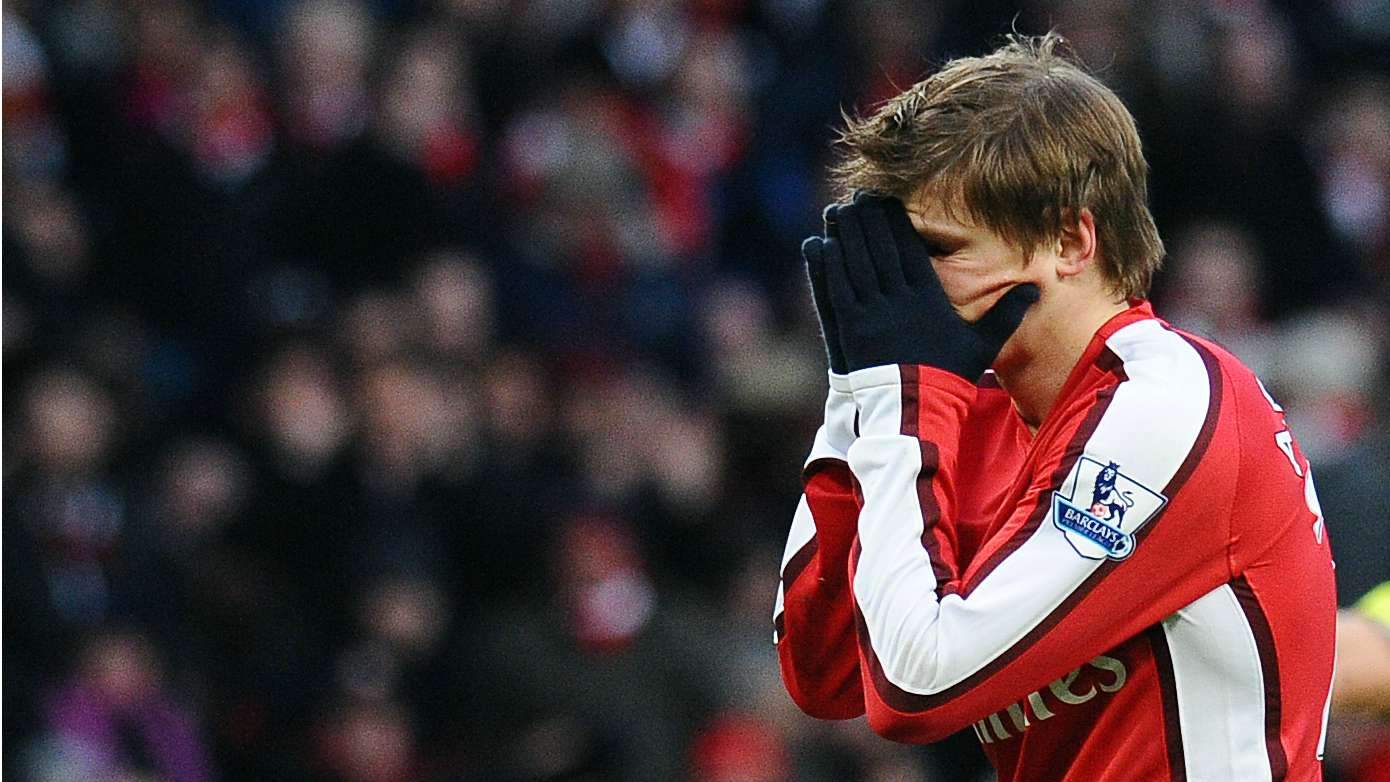 Getty
Getty
Not one of those players was able to fully realise his potential. After a bright start, they disappointed in England and, one by one, returned to Russia with their tails between their legs.
Perhaps England was the wrong move for them. Ten years ago, the Premier League was all about pace, power and physicality; there wasn't as much room for technicians as there is today, at least at clubs like Manchester City, Tottenham and Liverpool.
Russian players are used to the slower pace of the domestic league and the opportunities that provides to make up for mistakes on the pitch. They had a tough time getting used to the new rhythm, which required them to slog for long periods of time without a breather.
Arshavin, Zhirkov and Co. would have been more suited to a warm, sunny day in Valencia than a cold, rainy evening in Stoke. Spain or Italy would have provided the ideal environment for them to reach their potential.
Many of their 2008 team-mates chose not to go anywhere, but to continue to enjoy the comfort of the Russian league, most notably, Igor Akinfeev, the cornerstone of the Russian team.
He preferred to remain with CSKA Moscow, where he experienced a crisis in the mid-2010s, setting the record for most consecutive games without a clean sheet in the Champions League and conceding a shocker against South Korea at the 2014 World Cup.
Another factor in that team’s failure was over-confidence. The players crossed the line from self-belief to arrogance and, as a result, a good qualifying campaign for the 2010 World Cup ended in catastrophe in Maribor, with the Russians having grossly underestimated their Slovenian opponents.
Most importantly, the Russian footballing authorities did nothing to hold onto the attention of fans, who had fallen in love with the game.
This passion for football disintegrated along with the national team’s run of good results, and Russian clubs’ stadiums remained half-empty. The anticipated crowd of youngsters clamouring to join academies did not materialise, because the academies themselves were never built.
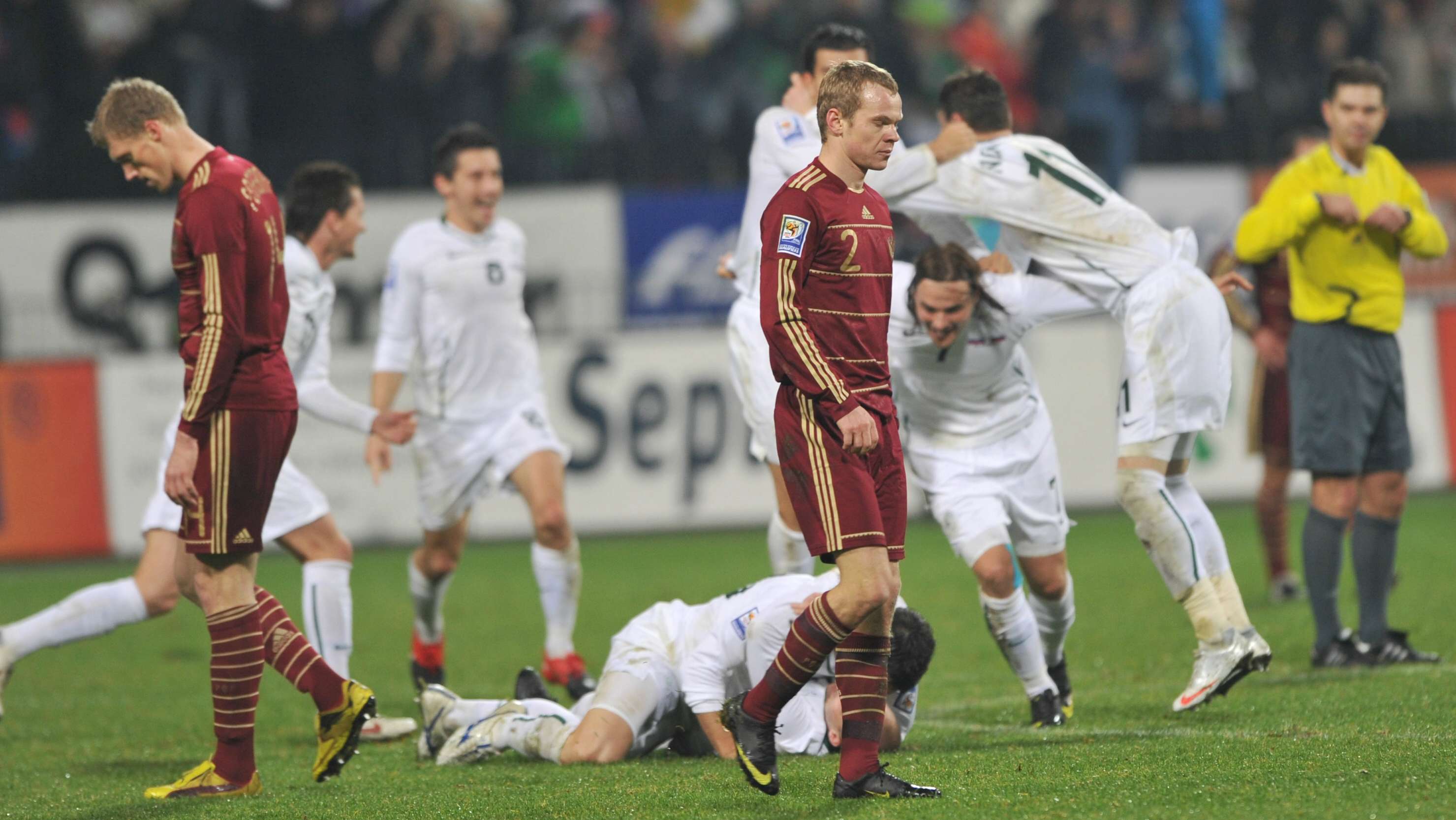
So, what needs to be done now so as to avoid repeating the same mistakes of 10 years ago?
First, Russia’s key players need to try their luck in Europe’s top leagues, and they need to go to leagues which suit their particular skillsets. For example, Artem Dzyuba would probably be at home in England, while Mario Fernandes and Roman Zobnin would have more joy in La Liga or Serie A.
Yes, these players are not superstars in their own right, like those who made up the team in 2008. However, they do have one major advantage: they represent a generation of people who have spent most of their lives in conditions of mass globalisation.
They watched MTV, debated the merits of Schwarzenegger over Stallone, and when playing FIFA they were more likely to pick Man Utd or Real Madrid than Zenit and Spartak. They are far better prepared for the wider world than Arshavin and Zhirkov, who throughout their time in the Premier League never even learned English.
Aleksandr Golovin, Fernandes and Akinfeev were all at the top of their game at this World Cup. Dzyuba, Zobnin, Ilya Kutepov and Denis Cheryshev all put in solid shifts. Some of them will be subject to offers this summer. Others may receive the call in winter after the Champions League group stage, or at the end of this season.
One of them already plays in Europe and scored four times this summer. Indeed, Villarreal's Cheryshev will have regaled his team-mates with tales of the joy of facing the world’s best players in La Liga.
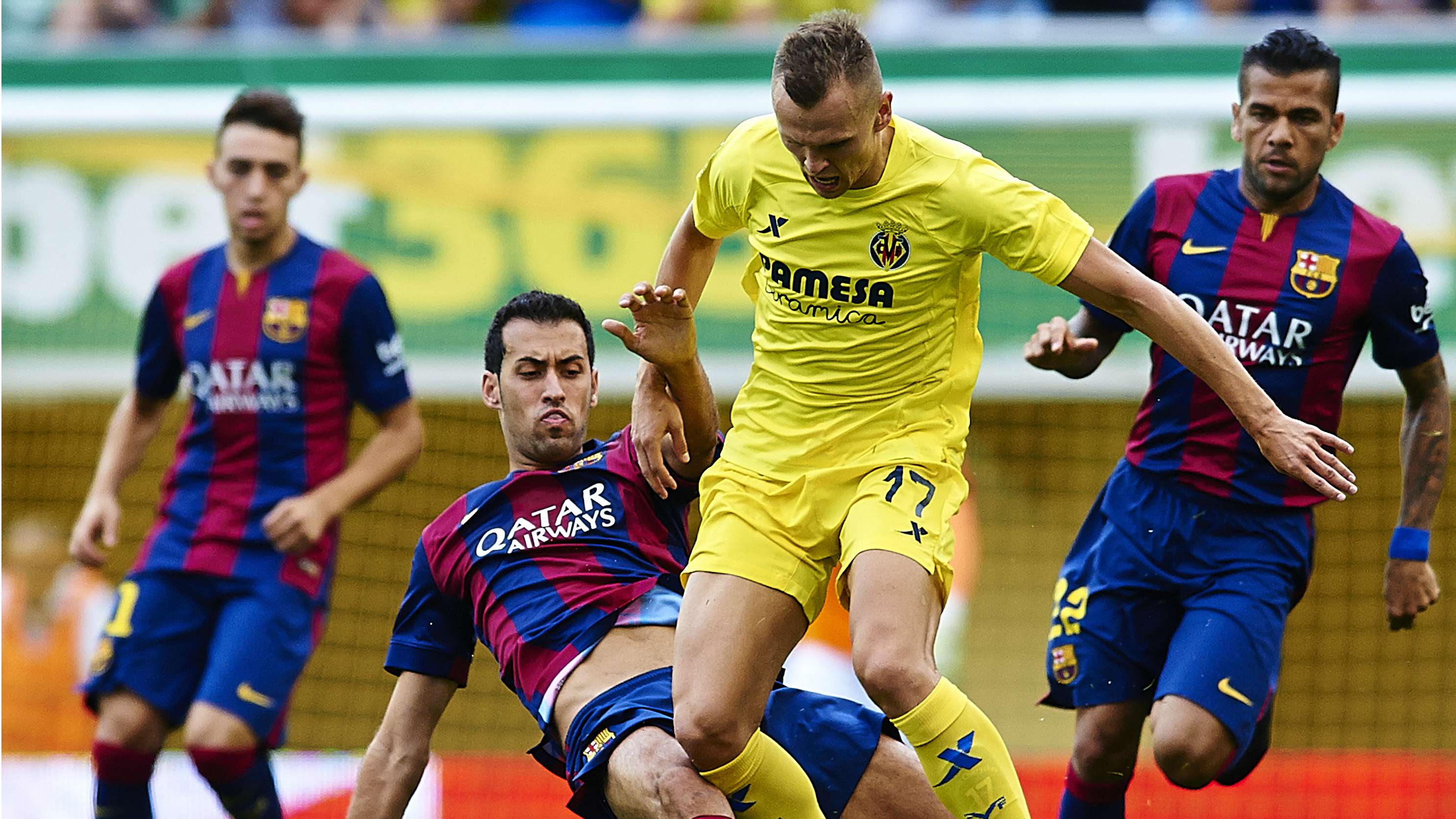 Getty
Getty
The defeat to Croatia was better for Russia than a win would have been, because it prevents our players from crumbling under the weight of over-confidence.
Russia performed excellently at the 2018 World Cup, but we must not forget that these results were not achieved by means of wonderful individual performances, but well-thought-out tactics, sacrifice and a lot of luck.
Reaching the semi-final would have been wonderful, but it would also have been a step too far. As it is, the players are all too aware that their success was down to their hard work, rather than some kind of transcendent talent.
Everyone watched the match against Croatia. People watched at airports, hospitals, at home and at fan zones. The Russian FA needs to take advantage of this. This wave of passion amongst Russians for their national team can be drawn out if maintained correctly.
The FA and the Russian Premier League need to switch on their marketing machines and announce (at the very least) the creation of a new academy system. This isn’t difficult; other countries have already done it and their experience can be leveraged.
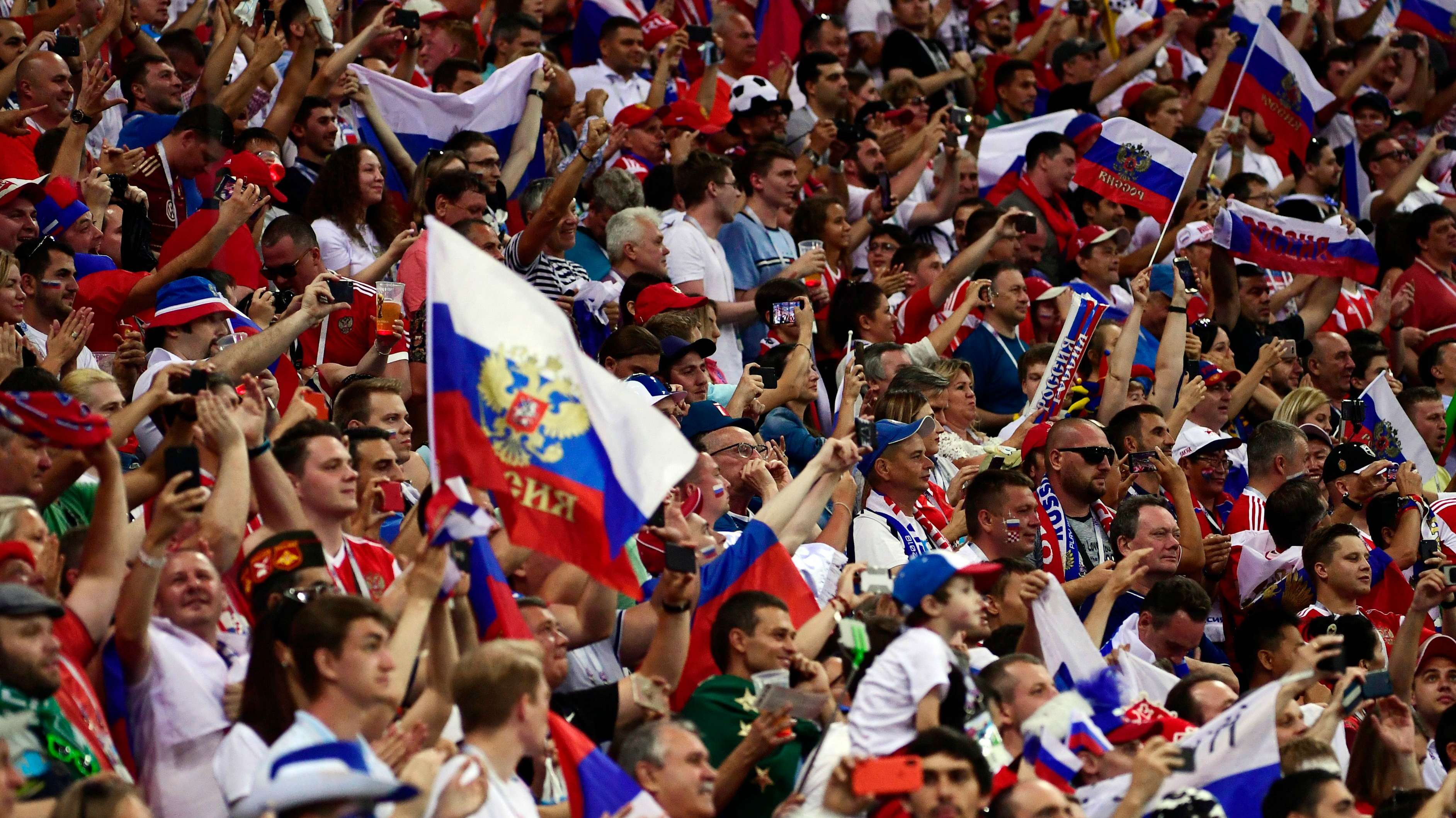 Getty
Getty
That leaves Russia with a young team (now that Sergei Ignashevich, Aleksandr Samedov and Zhirkov have retired) of players who understand that, to achieve big wins and win over the fans, they need to put everything into their games.
Players like Georgi Dzhikiya, Viktor Vasin and Aleksandr Kokorin, who missed the World Cup due to injury, will rejoin the team in the autumn. The Miranchuk twins and CSKA’s youngsters will start to play a bigger part in the side.
As for head coach Stanislav Cherchesov, he and his staff did very well at the World Cup, picking the right tactics for each game. But it’s time for him to go. Yes, he has finally found common ground with the players and fans, but it seems that he reached his peak at this World Cup.
The FA needs to find a specialist with even more tactical nous and who is capable of getting even more out of his players.
The Russian national team has everything it needs to become a great team over the next four years and repeat (or improve on) this result at the 2022 World Cup in Qatar. However, to make this happen, the players need to work even harder and take their chances in Europe’s top leagues.
And if the FA does its job properly, then in a decade or so, quarter-final finishes will cease to be surprising.
Don’t believe me? Well, less than a month ago, nobody else did either.
